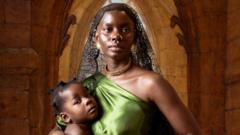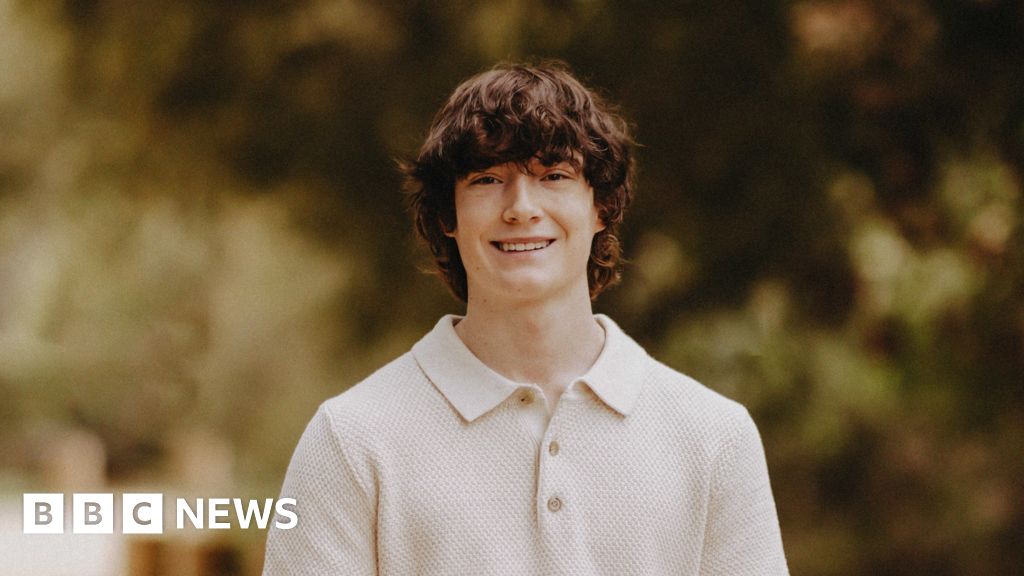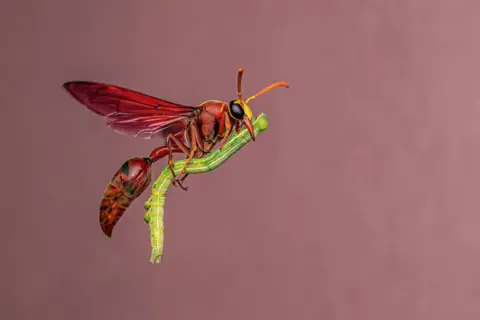Dola Posh wears many hats: she is a photographer, a woman, a Nigerian, a mother, and a Briton. However, after the birth of her daughter, the essence of who she was began to fade. Just six days post-delivery, she found herself confined to a hospital bed in England, navigating the isolation brought on by the COVID-19 lockdown while grappling with the daunting changes in her life.
Relatives who couldn’t visit maintained a constant stream of calls, inquiring about Dola and her newborn. The weight of this pressure bore down on her as she recalled her arduous pregnancy. "I thought: ‘I’m me; the baby’s out, I’m still me.’ But no, I wasn’t me any more,” she admitted, revealing the disorienting loss of identity that often accompanies postnatal depression, an issue that disproportionately affects Black women like herself.
After her hospital stay, Dola was inundated with unsolicited parenting advice, which only compounded her feelings of inadequacy. Despite her steadfast determination to be a good mother, the barrage of opinions left her feeling bewildered. Reflecting on her experiences in 2020, she spoke candidly about the emotional toll that left her feeling like a "zombie." The darkness escalated to the point where a despairing voice suggested taking her own life.
Desperate for solace, Dola clutched her blanket like a life raft, her infant daughter Monioluwa by her side, as the familiar tunes of her homeland resonated in her mind. A timely call to her health visitor turned things around. “I buried my head in shame... I don’t have the strength to be a mother,” she confessed. It was this shame that urged her towards therapy, where a compassionate therapist encouraged her to pick up her camera as a means of processing her emotions.
Dola has a rich background in photography, having honed her skills in Lagos, Nigeria while pursuing a marine biology degree. She quickly made a name for herself in the male-dominated realms of fashion and celebrity photography, but eventually gravitated towards portraiture that encouraged deeper connections. This shift in focus became her therapeutic outlet, leading her to capture intimate moments of her life with Monioluwa using a remote camera app.
The imagery she created inadvertently echoed the timeless motif of mother and child, deeply rooted in Western art traditions. Raised in a religious household with a bishop father, Dola was unknowingly influenced by representations of Mary and Jesus, which later surfaced in her photography as themes of hope and connection. The veil, once part of her church attire, became a celebratory element in her art — a symbol of reconnection with her heritage and family.
As she shared her narrative of motherhood riddled with challenges, Dola found an avenue to dissolve her shame. Her ongoing project seeks to depict the complexities of her journey, aiming to illuminate the darker moments while highlighting resilience. Earlier this year, she received a grant from Leica to further her artistic exploration, focusing on empowering Black women to break the silence around postnatal depression.
Dola envisions a world where Black mothers no longer shoulder their struggles in isolation or feel the need to conceal their experiences. “It’s new for a woman to stand there and say: ‘I almost ended my life, I’m not ashamed of it,’” she expressed. With her powerful narrative, Dola Posh champions a message of vulnerability, strength, and the transformative power of art, encouraging others to share their stories and seek support.




















